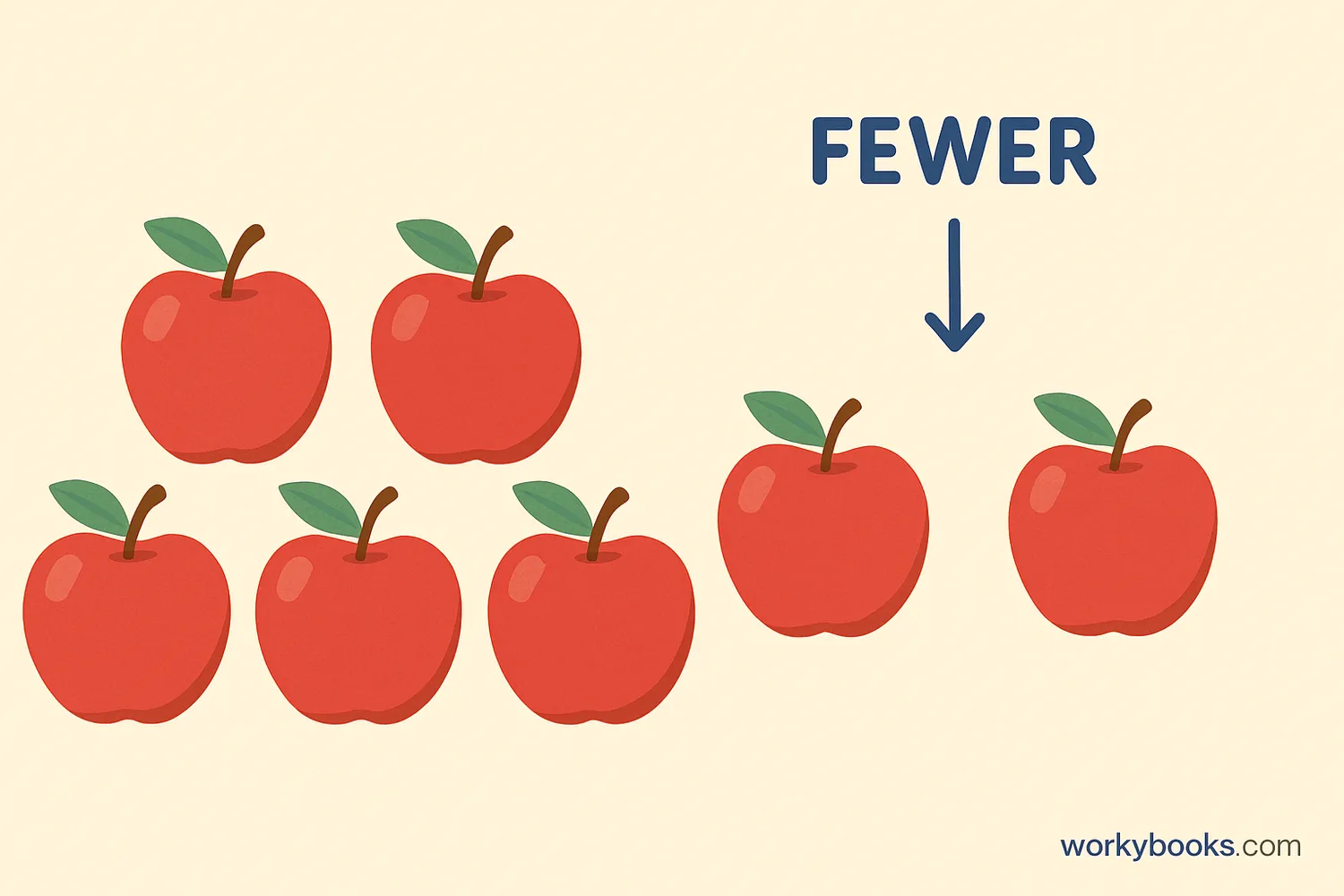Fewer - Definition, Examples, Quiz, FAQ, Trivia
Learn to compare quantities and understand the concept of "fewer" with examples and practice activities
What Does "Fewer" Mean?

Fewer is a math word we use when we compare two groups or amounts. When one group has a smaller number of items than another group, we say it has fewer items.
For example, if you have 3 cookies and your friend has 5 cookies, you have fewer cookies than your friend. We use "fewer" when we can count the items individually.
Understanding "fewer" helps us compare quantities and understand relationships between numbers. It's an important concept in early math that helps build number sense.
Key Concept
We use "fewer" when comparing countable items. The group with the smaller number has fewer items.
Fewer vs. Less: What's the Difference?
Many people get confused between "fewer" and "less." Here's the simple rule:
The Simple Rule
Less for things you can't count
- Apples, books, pencils, people - anything you can count individually
- Example: "There are fewer students in class today."
- Water, sand, time, money - things you measure but don't count individually
- Example: "I have less water in my bottle than you."
Remember
Fewer for countable nouns, less for uncountable nouns. This simple rule will help you use these words correctly!
Real-World Examples
Let's look at some examples of "fewer" in everyday situations:
Example 2: There are 15 students in Class A and 12 students in Class B. Class B has fewer students.
Example 3: The blue basket has 20 apples. The red basket has 18 apples. The red basket has fewer apples.
Example 4: Yesterday, 25 people came to the library. Today, only 15 people came. Today there are fewer people at the library.
Look around you right now. Can you find examples of "fewer"? Maybe you have fewer pencils on your desk than your friend, or fewer books in your backpack.
Practice Tip
Practice finding "fewer" in your daily life. Compare the number of items at home, in the classroom, or at the store!
Practice Quiz
Test your understanding of "fewer" with this 5-question quiz. Choose the correct answer for each question.
Frequently Asked Questions
Here are answers to common questions about "fewer":
Math Trivia
Discover interesting facts about comparison and math concepts:
Ancient Comparisons
The concept of "more" and "fewer" is one of the earliest mathematical understandings. Archaeologists believe even early humans used these comparisons for fair distribution of resources.
Word Origins
The word "few" comes from Old English "fēawa" meaning "not many". The comparative form "fewer" developed to specifically indicate a smaller number compared to another.
Animal Math
Some animals show understanding of "more" and "fewer". Studies show that monkeys, dolphins, and even birds can choose between groups with more or fewer items when offered rewards.
Infinite Comparison
In advanced math, there are different sizes of infinity! Some infinite sets have "more" elements than others, which is a fascinating extension of the "more/fewer" concept.





